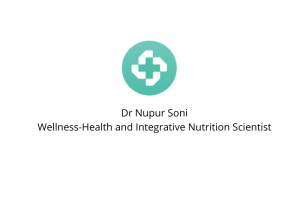For those recovering from COVID , feeling fatigue and persistent headache has become a recurring worry.
[the_ad id=”13371″]
When these symptoms continue for a long time they are called Post Covid syndrome.
Latest reports by NIH, UK have observed that about 50-80% of people who have recovered from COVID-19 suffer from at least one of the enduring symptoms:
-
Vital fatigue, extreme muscle pain, headache and sleep abnormalities that do not easily go away with rest.

-
Psychological issues like anxiety, depression, brain fog, breathlessness, post-traumatic stress disorder (PTSD) and obsessive-compulsive disorder (OCD).

For most of the people, the symptoms seem to naturally settle after 8-12 weeks, while in remaining 10% cases it can hang on for closer to 6 months post recovery. These patients with lingering symptoms are called “COVID long haulers”
Moreover , these incidences have been also reported in people with NO history of mental health issues. Also, due to the constant stress and fear faced at work, many frontline health-care providers are similarly affected.
The probable reasons for post Covid neuropsychiatric disorders.
- Imbalance of gut due to viral infection and antibiotics.
- Neuron inflammation- blood brain barrier, neurodegeneration
- Overactive immune response
- Dysregulated lymphatic system
- Long ICU stay, leading to post-ICU syndrome
- Lack of sleep during stay in hospital, which leads to cognitive impairment
Important Facts about brain, stress and mental health you must know.
- Your brain and your immune system are deeply linked to each other. Any kind of inflammatory response targets the neurotransmitters and neurocircuits to influence the risk of depression.
- High and unregulated stress negatively effects brain, immunity and vascular system increasing risk of blood pressure and sugar imbalance.
- Regular physical fitness/exercise leads to improved brain growth and reduced tissue damage due to oxidative stress.
- Mood and sleep quality can be improved with mindfulness and relaxation techniques.
- The future of your mental health depends on how much you invest into it presently. Your body is your own guide.
How to beat Post Covid Syndrome and create a healthier “New Normal You”
Though the road to recovery after COVID-19 is long and not the same for all of us but, these five facts together may help to overcome psychological symptoms and maintain a good mental hygiene. So how do we put it all together?
Firstly , If you do get COVID-19, make sure you take plenty of time to recover before jumping back into regular activities.
Remember, there is a great need for neurological care following the COVID infection. You need a tailored nutritional management along with psychological coaching in case you are one of those Covid long haulers, to recover faster.
-
Sleep hygiene
A sound sleep is crucial for wellbeing. Create a bedtime routine and find a relaxing activity like reading ,listening music etc. to slow down your brain before sleep. Sleep is a time when your immune system and brain are doing a lot of work to help body rebuild itself and be able to withstand the next round of stressors.
-
Keep a routine and take action
Keeping proper schedule during traumatic or stressful times have shown to cope better with post Covid syndrome. You can manage stress by sticking to routine for mealtimes, sleep, exercise, workout.
-
Practice being mindful and grateful
Be attentive to how you feel within. Do take a note of good things happening in your life. This practice of gratefulness and mindfulness pumps up the feel- good or happy hormones namely serotonin and dopamine that help release anxiety and stress.
-
Diet and exercise
Practice mindful eating and re-fuelling activities. Follow a satvik lifestyle and diet that makes you more positive and constructive in your approach. Include Vitamin C rich foods that boost the levels of serotonin and cut down cortisol (stress hormone), food rich in magnesium, potassium and omega-3 fatty acids. Light exercise(as much body permits) will boost up oxygen circulation and spur up feel good chemicals called endorphins.Exercises such as yoga and partial pushups, will help you work on controlled breathing.
-
Create a conducive environment
Do not hesitate to seek social support from others. Keep yourself connected with your loved ones. Call that relative or friend you haven’t spoken to in a while. Create and encourage a conducive environment for everyone around recovering from post-Covid symptoms.
-
Explore mental health toolkit
Learn to use tools and health apps focusing on tracking, coaching and management for long-Covid symptoms, charting your physical activities, so you have a better idea of how well you are improving. The pandemic has brought in a massive attention to the growing resources available online that can be used with wisdom.
The Bottom line
Early assessment along with timely monitoring and management will help relieve several neurological and psychological symptoms of disease that may persist even weeks after testing negative.
Source:

